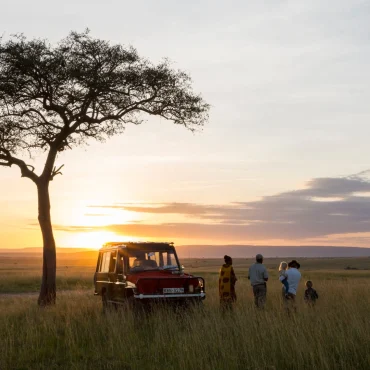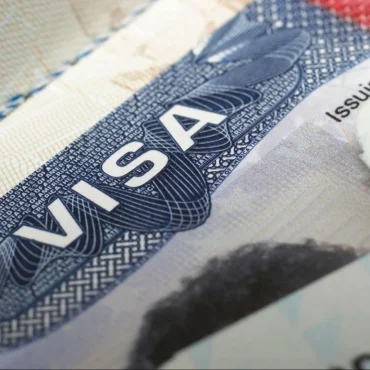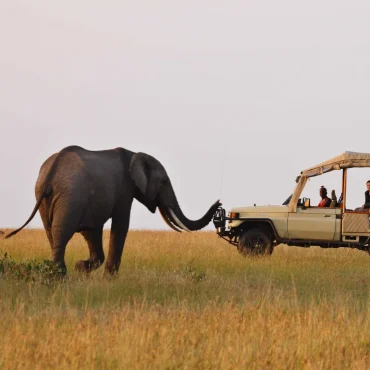Average Costs for a Kenya Safari
Planning a safari in Kenya offers a range of costs that can fit various budgets and travel preferences.
On average, the Kenya Safari Costs can range from about $175 per day for a budget safari, around $250 for a mid-range option, and upwards of $450 for a luxury experience.
These price points reflect the wide array of accommodations and activities available, highlighting Kenya as a diverse destination suited for different types of travellers.
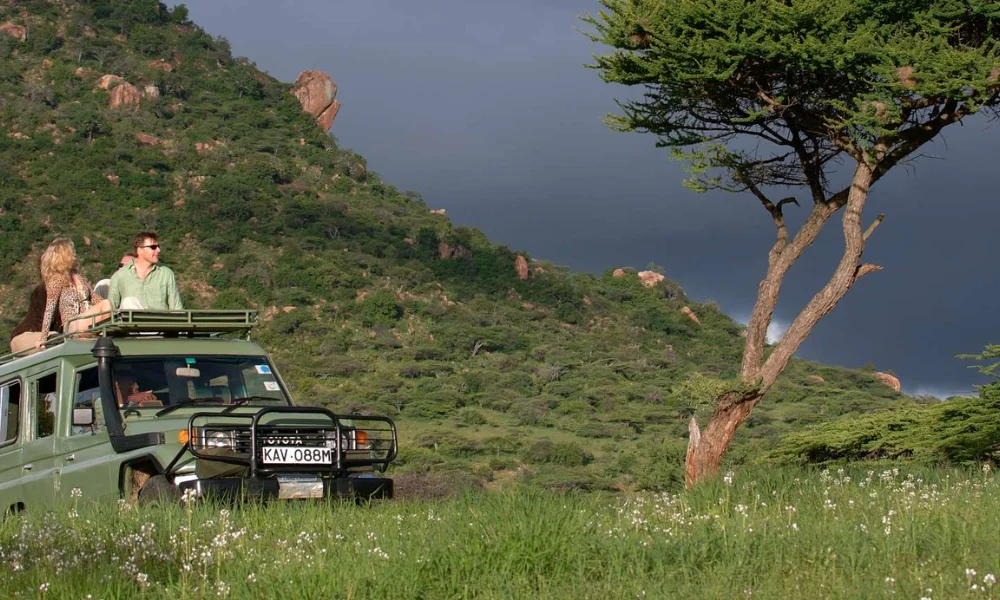
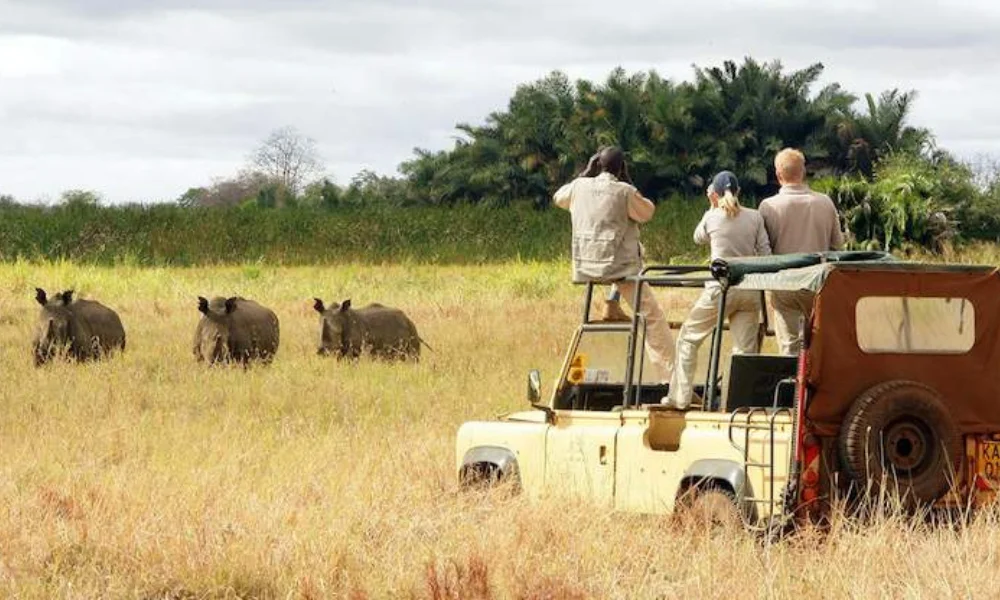
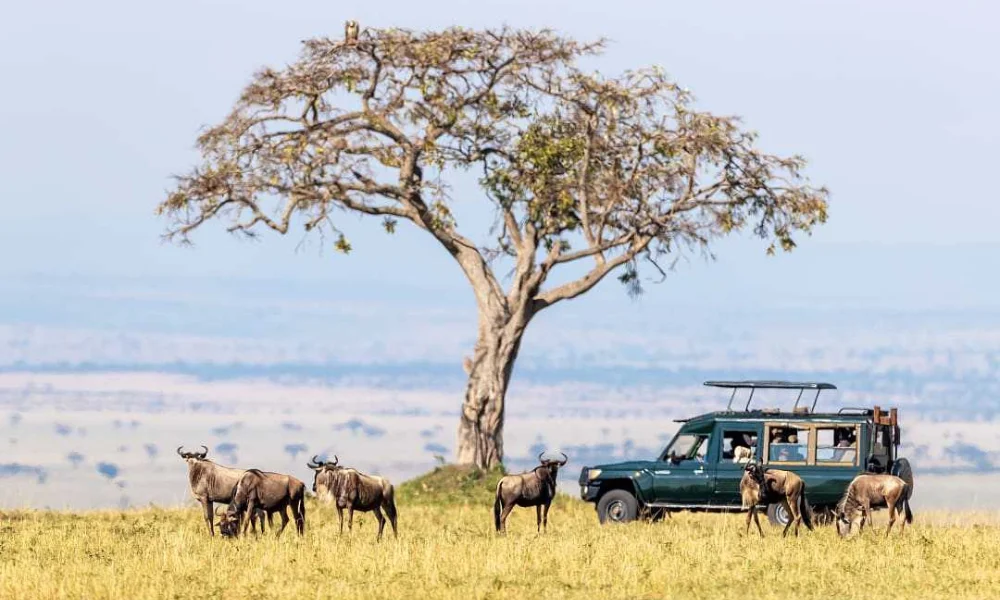
Determinants of Kenya Safari Costs
From the sweeping plains of the Masai Mara to the rugged terrains of Tsavo, plan your Kenyan safari with a budget in mind.
The overall cost of a Kenya safari is influenced by several key factors:
- Seasonal Demand – Safari costs peak during the high season from July to October and from mid-December to mid-January, driven by the great wildebeest migration and holiday travel. Conversely, the low season, marked by the rainy months from March to May, offers lower prices due to reduced visitor numbers.
- Accommodation Choices – The spectrum of accommodation costs varies widely; budget camping might cost around $175 per day, while luxurious lodges can demand upwards of $450 per day. The level of luxury and amenities provided at these accommodations directly impacts the price.
- Safari Duration – Longer safaris tend to lower the average daily cost as expenses like transportation and guide services are spread out.
- Transport Options – The choice between travelling by land or air between parks can significantly affect costs, with flights being quicker but more expensive.
- Group Size – Costs per person can decrease with larger groups as expenses on guides, transportation, and accommodation are shared.
- Choice of Parks – Visiting high-profile parks like the Masai Mara is typically more expensive, especially during peak events like the migration. Opting for lesser-known parks can reduce costs.
These factors collectively contribute to the financial planning of your safari, affecting both the cost and the quality of your Kenyan adventure.
Additional Financial Considerations
When budgeting for a Kenyan safari, several additional costs need consideration:
- International Travel – Flights to Nairobi, a major hub for safari travel, vary in price, with deals more likely found outside peak tourist seasons.
- Visa Fees – Most nationalities are charged $50 for a visa, but if planning to visit multiple East African countries, an East African tourist visa at $100 might be required.
- Health Precautions – Mandatory vaccinations such as yellow fever are required for entry. Malaria prophylaxis is also recommended, particularly if travelling to coastal or western regions.
- Gratuities – Tipping is an expected practice in the safari industry, with $15 per person per day being a standard recommendation for guides and staff.
- Insurance Needs – Ensure your travel insurance covers all activities planned, including high-altitude trekking or diving, which are often excluded from standard policies.
- Special Activities – Engaging in unique experiences like hot-air balloon rides or specialized tours will incur additional costs but provide memories that will stay with you forever.
Planning for these expenses ensures that you can enjoy a hassle-free safari experience without unexpected financial surprises.
Key Points on Managing Safari Costs
Off-Peak Travel
Visit during the shoulder seasons for better rates.
Local Dining
Choose to dine at local eateries rather than exclusively at lodges.
Public Camping
Utilize designated camping areas to save on accommodation.
Shared Tours
Opt for group safaris for lower costs per person.
Direct Booking
Avoid intermediary fees by booking directly with safari operators.
Currency Exchange
Keep local currency on hand for small daily expenses.


